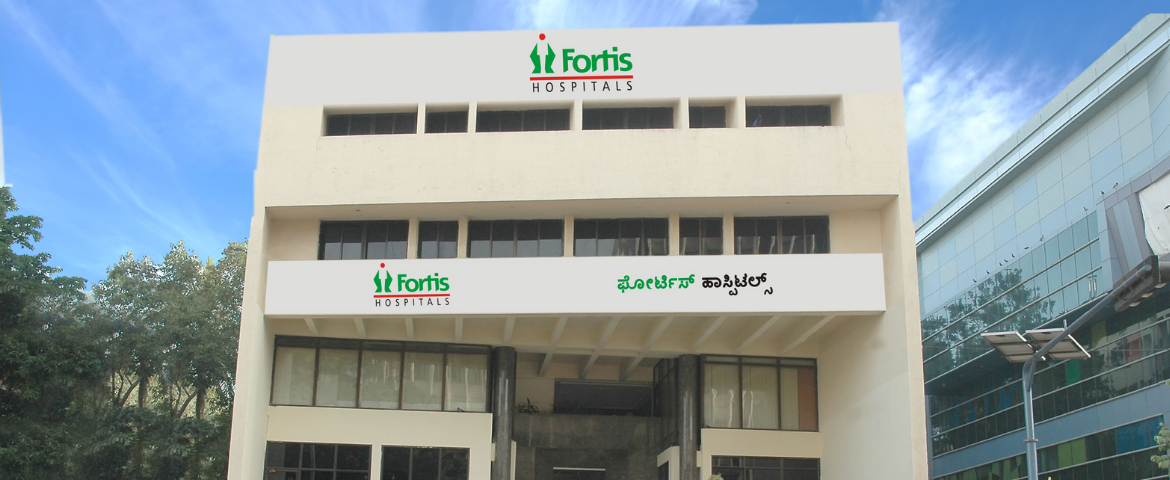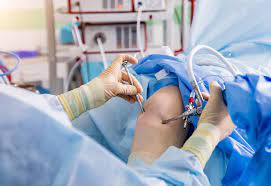Knee Repair Surgery cost in India
The cost of Knee Repair Surgery in India ranges
from USD 2100 to USD 6000
Procedure Description:
Knee Repair Surgery
Knee repair surgery is performed by Knee replacement, sometimes referred to as knee arthroplasty, is a surgical treatment used to replace the knee joint's weight-bearing surfaces in an effort to reduce pain and impairment. It is typically recommended when non-invasive methods of treating joint discomfort are ineffective.
Disease Overview:
Knee injury due to torn meniscus
One of the most frequent knee ailments is a torn meniscus. A torn meniscus can be caused by any action that causes you to twist or spin your knee violently, especially when you put your entire weight on it.
Between your shinbone and your thighbone, your knees have two C-shaped pieces of cartilage that function as a cushion. Pain, edoema, and stiffness are all symptoms of a torn meniscus. You may also notice a restriction in knee mobility and difficulty completely extending your knee.
Conservative therapy, such as rest, ice, and medication, can ease the discomfort of a torn meniscus and allow the injury to heal on its own in some cases. A torn meniscus, on the other hand, may necessitate surgery in some circumstances.
Disease Signs and Symptoms:
If your meniscus is torn, it may take up to 24 hours for pain and swelling to appear, especially if the tear is slight. The following indications and symptoms may appear in your knee:
- A feeling of popping
- Stiffness or swelling
- Pain in your knee, especially while twisting or turning it.
- Having trouble completely straightening your knee
- When you try to move your knee, it seems like it's stuck in place.
- You have the sensation that your knee is giving way.
Disease Causes:
Any activity that leads you to aggressively twist or rotate your knee, such as vigorous pivoting or quick stops and turns, can cause a torn meniscus. Kneeling, squatting deeply, or lifting anything heavy can all cause a torn meniscus.
Degenerative changes in the knee can cause a torn meniscus in elderly persons with little or no trauma.
Factors that are at risk
A torn meniscus can occur when you engage in activities that require vigorous twisting and turning of the knee. Athletes, particularly those who participate in contact sports such as football or activities that require pivoting, such as tennis or basketball, are at a higher risk.
The chance of a torn meniscus grows as you get older due to wear and tear on your knees.
Disease Diagnosis:
A torn meniscus is frequently detected during a physical examination. To assist establish the origin of your signs and symptoms, your doctor may move your knee and leg into different positions, watch you walk, and ask you to squat.
X-rays are used in imaging examinations. A torn meniscus is not visible on X-rays since it is comprised of cartilage. X-rays, on the other hand, can help rule out other knee disorders that cause similar symptoms.
MRI. A powerful magnetic field is used to create detailed photographs of both the hard and soft tissues of your knee. It's the most accurate imaging test for detecting a torn meniscus.
Arthroscopy
To inspect the interior of your knee, your doctor may use an arthroscope. A small incision near your knee is used to introduce the arthroscope.
The gadget includes a light and a tiny camera that displays an enlarged image of the inside of your knee on a monitor. To trim or repair the rip, surgical equipment might be placed through the arthroscope or additional tiny incisions in your knee.
Disease Treatment:
Depending on the kind, size, and location of your tear, conservative treatment for a torn meniscus is frequently the first step.
Tears caused by arthritis normally improve over time as the arthritis is treated, thus surgery is rarely necessary. Many other rips that aren't connected with locking or a block to knee mobility will get better with time and won't require surgery.
Your doctor may advise you to:
Rest. Avoid any action that causes you to twist, spin, or pivot your knee, since this can increase your discomfort. Crutches can relieve strain on your knee and assist recovery if your pain is severe.
Ice. Knee discomfort and edoema can be reduced by using ice. For roughly 15 minutes at a time, use a cold pack, a bag of frozen vegetables, or a towel covered with ice cubes while keeping your knee elevated. Repeat every 4 to 6 hours for the first day or two, then as required.
Medication. Knee discomfort can also be relieved with over-the-counter pain medications.
Therapy
To assist stabilise and support the knee joint, physical therapy can help you develop the muscles surrounding your knee and in your legs.
Surgery
Your doctor may prescribe surgery if your knee remains uncomfortable despite rehabilitative treatment or if it locks. A torn meniscus can occasionally be repaired, especially in children and young people.
If the tear cannot be healed, the meniscus may be surgically trimmed, sometimes using an arthroscope to make small incisions. You'll need to undertake workouts after surgery to maintain and improve knee strength and stability.
Your doctor may propose a knee replacement if you have severe degenerative arthritis. A meniscus transplant may be helpful for younger persons who have signs and symptoms following surgery but no advanced arthritis. A cadaveric meniscus is transplanted during the procedure.
Country wise cost comparison for Knee Repair Surgery:
| Country | Cost |
|---|---|
| India | $2790 |
| Canada | $2932 |
Treatment and Cost
12
Total Days
In Country
- 2 Day in Hospital
- 2 No. Travelers
- 10 Days Outside Hospital
Treatment cost starts from
$3100
Popular Hospital & Clinic
Featured Hospital
0 Hospitals
Related Packages
More Related Information
Some of the top rated hospitals are:
- Canada
- Toronto General Hospital
- Jewish General Hospital
- Montreal General Hospital (McGill University Health Centre)
- Royal Jubilee Hospital (RJH)
- The Royal Victoria Hospital (McGill University Health Centre)
- Centre hospitalier de l’Université de Montréal (CHUM)
- Victoria General Hospital
- St Michaels Hospital Toronto
- Hamilton General Hospital
- MCMASTER UNIVERSITY MEDICAL CENTRE
- University of Ottawa Heart Institute
- Italy




